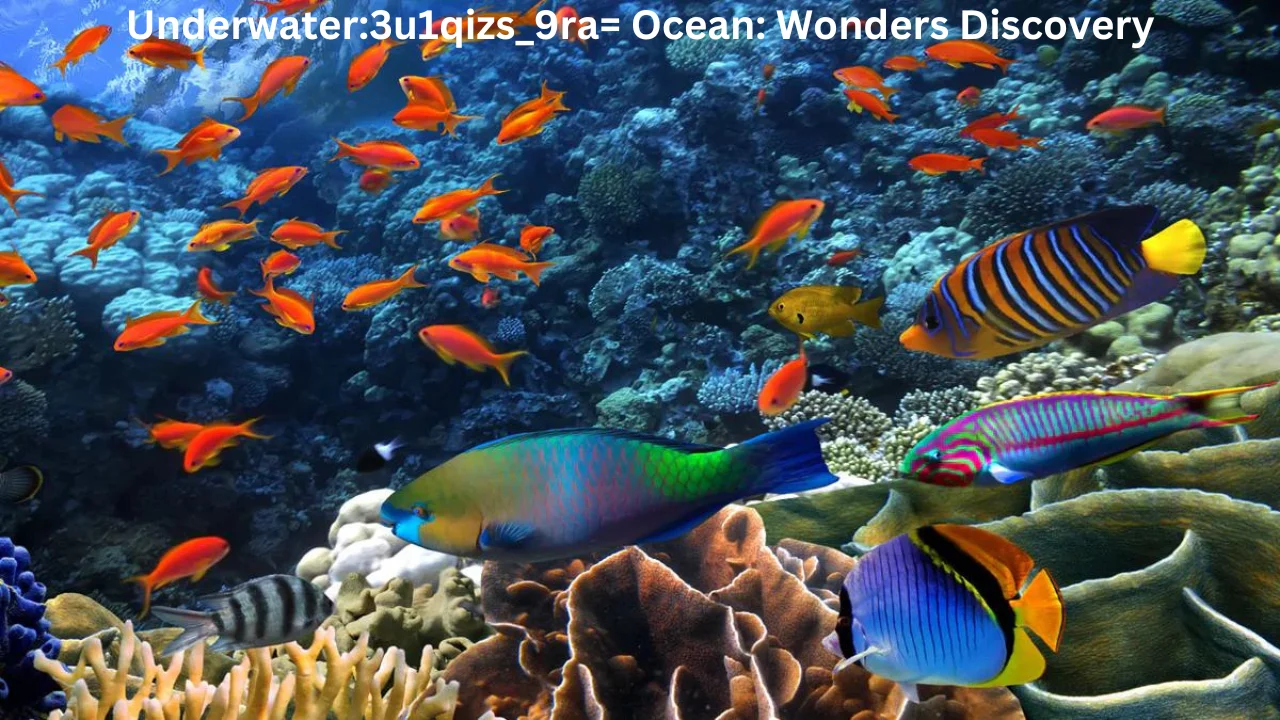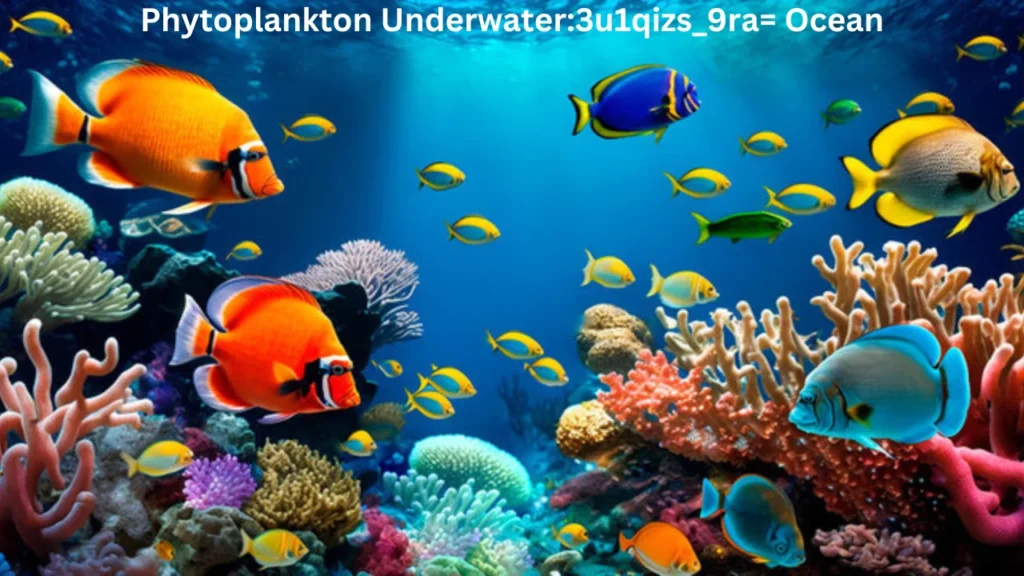Underwater:3u1qizs_9ra= Ocean: Wonders Discovery

Underwater:3u1qizs_9ra= Ocean The ocean, covering more than 70% of the Earth’s surface, is a vast and mysterious expanse that holds immense beauty, a multitude of life forms, and countless wonders waiting to be discovered. For some, the ocean is a symbol of adventure, while for others, it represents a source of tranquility, discovery, or even inspiration. This guide will take you on a journey through the ocean’s unique ecosystems, the astonishing creatures that inhabit them, and the critical role these environments play in maintaining the health and wellbeing of our planet.
What Is Underwater:3u1qizs_9ra= Ocean?
Underwater:3u1qizs_9ra= Ocean could symbolize the exploration and study of marine life, particularly focusing on the diverse and astonishing creatures that inhabit the ocean’s depths. This term could be used as a thematic title or identifier for content, projects, or discussions centered around oceanography, marine biology, and the hidden wonders of the ocean.
Ocean’s Role in Climate Regulation:
The underwater:3u1qizs_9ra= ocean plays a crucial role in regulating the Earth’s climate by absorbing heat and carbon dioxide from the atmosphere. This vast body of water acts as a global thermostat, distributing heat around the planet through ocean currents. Without the oceans ability to absorb carbon dioxide, the effects of climate change would be much more severe. Protecting the ocean is essential for maintaining a stable climate.
Coral Reefs: The Rainforests of the Sea
Coral reefs in the underwater:3u1qizs_9ra= ocean are among the most diverse and productive ecosystems on Earth, often compared to tropical rainforests. They provide habitat and shelter for a vast array of marine species, from tiny shrimp to large predatory fish. These reefs in the ocean also protect coastlines from erosion by absorbing wave energy. However, coral reefs are under threat from climate change, pollution, and overfishing, making their conservation in the ocean critical.
Mystery of the Deep Sea
The deep sea within the underwater:3u1qizs_9ra= ocean is one of the most mysterious and least explored regions of our planet, located thousands of meters below the ocean’s surface. Despite the extreme conditions, life thrives in this part of theocean, with creatures adapted to the cold, darkness, and high pressure. Many deep-sea species in theocean are bioluminescent, creating their own light in the darkness. This hidden world continues to fascinate scientists and holds many secrets yet to be discovered.
Importance of Marine Biodiversity
Marine biodiversity in the underwater:3u1qizs_9ra= ocean refers to the variety of life found in the ocean, from the smallest microorganisms to the largest mammals. This diversity is crucial for the health of marine ecosystems in the ocean, providing resilience against environmental changes. Each species in the Ocean plays a specific role in maintaining the balance of the ecosystem, ensuring the stability of the ocean’s food web. Protecting marine biodiversity in the ocean is vital for the sustainability of our oceans.
Importance Of The Ocean In Ecosystem:
| Aspect | Importance | Examples |
|---|---|---|
| Climate Regulation | The ocean absorbs heat and carbon dioxide, helping to regulate the Earth’s climate. | Ocean currents distribute heat; carbon sinks |
| Biodiversity | The ocean is home to a vast array of species, contributing to global biodiversity. | Coral reefs, deep-sea ecosystems |
| Oxygen Production | Phytoplankton in the ocean produce over half of the Earth’s oxygen through photosynthesis. | Oxygen generated by phytoplankton |
| Food Source | The ocean provides a major source of protein for billions of people worldwide. | Fish, shellfish, seaweed |
| Carbon Sequestration | The ocean absorbs and stores carbon dioxide, helping to mitigate climate change. | Carbon absorbed by ocean water and marine life |
| Economic Resources | The ocean supports industries such as fishing, tourism, and transportation. | Fisheries, shipping routes, coastal tourism |
| Cultural Significance | Oceans have deep cultural, spiritual, and recreational importance for many communities. | Coastal traditions, maritime history, water sports |
| Weather Patterns | The ocean influences weather patterns and precipitation through the water cycle. | Hurricanes, monsoons, El Niño and La Niña effects |
| Natural Habitats | Oceans provide habitats for countless species, including some found nowhere else on Earth. | Coral reefs, kelp forests, seagrass beds |
| Recreational Opportunities | Oceans offer numerous recreational activities, contributing to human well-being and economy. | Swimming, diving, boating, fishing |
This table highlights how the ocean is integral to the health of our planet, supporting biodiversity, climate regulation, economic activities, and cultural practices.
Phytoplankton:

Phytoplankton are microscopic plants in the underwater:3u1qizs_9ra= ocean that form the base of the marine food web, supporting all other ocean life. They are responsible for producing over half of the world’s oxygen through photosynthesis, making them vital for both marine and terrestrial life. Phytoplankton in the ocean also play a crucial role in the carbon cycle, absorbing carbon dioxide from the atmosphere. Protecting the ocean’s phytoplankton populations is essential for maintaining the health of the planet.
Kelp Forests:
Kelp forests within the underwater:3u1qizs_9ra= ocean are large underwater ecosystems found in cold, nutrient-rich waters around the world. These forests provide habitat and food for a wide range of marine species in the ocean, including fish, invertebrates, and marine mammals. Kelp forests in the ocean also help to protect coastlines from erosion and absorb carbon dioxide, contributing to climate regulation. The health of kelp forests in the ocean is threatened by climate change and human activities, making their preservation important.
Threat of Overfishing
Overfishing in the underwater:3u1qizs_9ra= ocean occurs when fish and other marine species are caught faster than they can reproduce, leading to population declines. This practice not only threatens the species being overfished but also disrupts entire marine ecosystems in the ocean. Overfishing can lead to the collapse of local fisheries, affecting food security and livelihoods around the world. Sustainable fishing practices are necessary to prevent overfishing in the ocean and ensure the future of our oceans.
Wonders of Ocean
Bioluminescence is the ability of certain marine organisms in the underwater:3u1qizs_9ra= ocean to produce light through chemical reactions within their bodies. This phenomenon is most commonly found in deep-sea creatures in the ocean, where it serves various purposes such as attracting prey, deterring predators, and communication. The glowing displays of bioluminescent organisms create some of the ocean’s most magical scenes. Understanding and preserving these unique species is important for maintaining the ocean’s biodiversity.
Frequently Asked Questions?
What role does underwater:3u1qizs_9ra= ocean Earth’s climate?
The ocean absorbs heat and carbon dioxide, helping to regulate the Earth’s climate by distributing heat around the planet through currents.
Why are coral reefs important in underwater:3u1qizs_9ra= ocean?
Coral reefs provide habitat and shelter for numerous marine species and protect coastlines from erosion, making them vital for marine biodiversity.
What is the significance of phytoplankton in the ocean?
Phytoplankton produce over half of the Earth’s oxygen and play a crucial role in the carbon cycle by absorbing carbon dioxide from the atmosphere.
How does plastic pollution affect marine life?
Plastic pollution harms marine animals, as they often mistake plastic for food, leading to injury or death, and introduces microplastics into the ocean’s food chain.
Conclusion:
The underwater:3u1qizs_9ra= ocean is a vital part of our planet, playing an essential role in climate regulation, supporting diverse ecosystems, and providing resources that are crucial for human life. From the vibrant coral reefs to the mysterious deep sea, the ocean’s ecosystems are both fascinating and fragile. Protecting this vast and mysterious realm is critical for the health of our planet and future generations. Whether you’re an ocean enthusiast or simply curious about what lies beneath, understanding the importance of the ocean is the first step towards ensuring its preservation.






